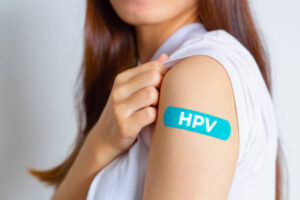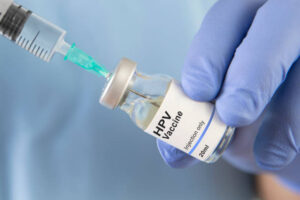
Human Papillomavirus Infection
Human papillomavirus infection, commonly known as HPV infection, is a significant public health concern worldwide. This virus comprises over 200 strains, some of which can lead to serious health issues.
Understanding what human papillomavirus infection is, its signs and symptoms, how it is contracted, and ways to prevent it can empower individuals to protect their health.
What Is Human Papillomavirus Infection?
Human papillomavirus infection is a sexually transmitted infection caused by the human papillomavirus. While most HPV strains are harmless, some can lead to genital warts or even cancers, including cervical cancer. Many people who contract HPV remain unaware due to the absence of noticeable symptoms. It is crucial for individuals to recognize the risks associated with this virus.

Signs and Symptoms of HPV Infection
Most individuals infected with human papillomavirus do not exhibit symptoms. However, certain strains can lead to visible symptoms. Common symptoms of HPV infection include:
- Genital warts: Small bumps or groups of bumps in the genital area.
- Common warts: Rough, raised bumps that can appear on various parts of the body.
- Plantar warts: Hard, grainy growths that develop on the soles of the feet.
- Flat warts: Smaller, smoother bumps that can appear anywhere on the body.
It is essential to consult a healthcare provider if any unusual growths or changes occur. Early detection can lead to effective management of the condition.
How Is Human Papillomavirus Infection Contracted?
Human papillomavirus infection is primarily transmitted through intimate skin-to-skin contact. This can occur during vaginal, anal, or oral sex with an infected person. Additionally, HPV can be contracted even if the infected individual shows no visible symptoms.
It is important to note that HPV can also spread through non-sexual means, although this is less common. Sharing personal items, such as towels or undergarments, may pose a risk in some cases.
How to Avoid Getting HPV Infection
Preventing human papillomavirus infection involves several proactive measures. The following strategies can significantly reduce the risk:
- Vaccination: HPV vaccines are highly effective in preventing infection from the most harmful strains. Vaccination is recommended for preteens and young adults.
- Safe sex practices: Using condoms and dental dams during sexual activity can lower the risk of transmission, though they do not eliminate it entirely.
- Regular screenings: Routine cervical screenings for women can help detect any changes in cervical cells caused by HPV.
- Open communication: Discussing sexual health with partners can foster awareness and encourage safe practices.
By adopting these measures, individuals can take significant steps to protect themselves from HPV infection.
Myths and Misconceptions About HPV Vaccination
Several myths and misconceptions surround human papillomavirus vaccination. One common myth is that the vaccine encourages promiscuity. However, studies have shown that vaccination does not influence sexual behavior among adolescents.
Another misconception is that the HPV vaccine is only necessary for females. In reality, both males and females can benefit from vaccination.
Additionally, some people believe that the vaccine provides lifelong immunity. While the vaccine is highly effective, ongoing research is being conducted to understand its long-term efficacy.

Stereotypes About HPV Vaccination in Kenya
In Kenya, societal stereotypes often affect attitudes toward HPV vaccination. Some communities may view vaccination as unnecessary or associate it with promiscuity.
Additionally, misinformation can hinder vaccine uptake. Many individuals may lack accurate information about the importance and safety of the HPV vaccine.
These stereotypes can be detrimental, as they prevent many young people from receiving potentially life-saving vaccination.
The Church’s Stand on Vaccination in Kenya
The church’s stance on vaccination in Kenya plays a critical role in shaping public opinion. While some religious leaders support vaccination, others express concerns about its implications.
Certain denominations promote the importance of health and vaccination, encouraging their congregations to protect themselves. Conversely, others may question the safety and necessity of the HPV vaccine.
This divide often leads to confusion and hesitance within communities regarding vaccination.
Read Also: Benefits of Rosemary
Closing Remarks
Awareness about human papillomavirus infection is crucial for prevention and health management. Understanding what is human papillomavirus infection, its signs, and its transmission is vital for informed decision-making.
By debunking myths, addressing stereotypes, and understanding the church’s role, communities can improve vaccination rates and protect public health.
Be aware and take action; ignorance can lead to severe health consequences.






